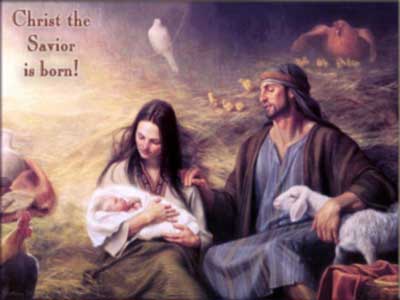


S.Singsaneh

l Home l Articles l Music on Line l Web Board l Guest Book l Catholic Links l นักบุญทั้งหลาย l กุหลาบทิพย์ l Fordec l Contact Us l
วันฉลองนักบุญ
นักบุญมัทธิว หรือที่เรียกกันว่า "เลวี" ในพระวรสารของนักบุญมาระโกและลูกา มีอาชีพเก็บภาษีให้กรุงโรม ที่เมืองคาเปอร์นาอุม ทั้งคงมีพื้นเพทางวัฒนธรรมกรีก แต่ชื่อเก่าเป็นภาษาฮีบรู (มก.2:14) ชื่อของท่านมัทธิวนั้นหมายถึง "คนของพระเจ้า" ในพระวรสารเขียนถึงว่า "วันหนึ่งขณะที่ท่านนั่งอยู่บนโต๊ะทำงาน พระเยซูเจ้าเสด็จมาและชักชวนท่านว่า จงตามเรามาเถิด ทันใดนั้นท่านก็ได้ละทิ้งงานและติดตามพระองค์ไป" (มธ.9:9; มก.2:13-14; ลก.5:27-28)และหน้าที่สำคัญของท่านอีกอย่างหนึ่ง การถ่ายทอดข่าวดีหรือพระวรสาร หลังจากการเสด็จกลับคืนชีพของพระเยซูเจ้าแล้ว ท่านได้นิพนธ์พระวรสาร เพื่อชักชวนให้ชาวยิวเชื่อมั่นว่า พระเยซูเจ้าคือ พระเมสสิยาห์ พระผู้ไถ่ที่ทรงเป็นพระเจ้าและมนุษย์แท้ ท่านได้เผยแพร่พระวรสารแก่พวกยิวเป็นเวลา 15 ปี จนได้สมญานามว่า "อัครสาวกแห่งเอธิโอเปีย" ในภาพจะเห็นว่า ท่านยืนอยู่บนถุงเงิน แต่ท่านกำลังอ่านพระคัมภีร์อยู่ หมายความว่า ท่านเลิกอาชีพเก็บภาษีมาเป็นอัครสาวกและเป็นผู้นิพนธ์พระวรสารฉบับหนึ่งMatthew the Apostle
Also known as
Levi; Apostle of EthiopiaMemorial
21 SeptemberProfileSon of Alphaeus, he lived at Capenaum on Lake Genesareth. He was a Roman tax collector, a position equated with collaboration with the enemy by those from whom he collected taxes. Jesus' contemporaries were surprised to see the Christ with a traitor, but Jesus explained that he had come "not to call the just, but sinners."Matthew's Gospel is given pride of place in the canon of the New Testament, and was written to convince Jewish readers that their anticipated Messiah had come in the person of Jesus. He preached among the Jews for 15 years; his audiences may have included the Jewish enclave in Ethiopia, and places in the East.Name Meaning
gift of GodPatronage
accountants; bankers; bookkeepers; customs officers; financial officers; guards; money managers; Salerno, Italy; security forces; security guards; stock brokers; tax collectors; diocese of Trier, GermanyRepresentationangel holding a pen or inkwell; bag of coins; halberd; inkwell; king; lance; man holding money; money bag; money box; purse; spear; sword; winged man; young manImages
Gallery of images of Saint MatthewReadings"Jesus saw a man called Matthew sitting at the tax office, and he said to him: Follow me." Jesus saw Matthew, not merely in the usual sense, but more significantly with his merciful understanding of men."He saw the tax collector and, because he saw him through the eyes of mercy and chose him, he said to him: "Follow me." This following meant imitating the pattern of his life - not just walking after him. Saint John tells us: "Whoever says he abides in Christ ought to walk in the same way in which he walked.""And he rose and followed him." There is no reason for surprise that the tax collector abandoned earthly wealth as soon as the Lord commanded him. Nor should one be amazed that neglecting his wealth, he joined a band of men whose leader had, on Matthew's assessment, no riches at all. Our Lord summoned Matthew by speaking to him in words. By an invisible, interior impulse flooding his mind with the light of grace, he instructed him to walk in his footsteps. In this way Matthew could understand that Christ, who was summoning him away from earthly possessions, had incorruptible treasures of heaven in his gift.from a homily by Saint Bede the Venerable
@2005 S.S. Graphic Design

